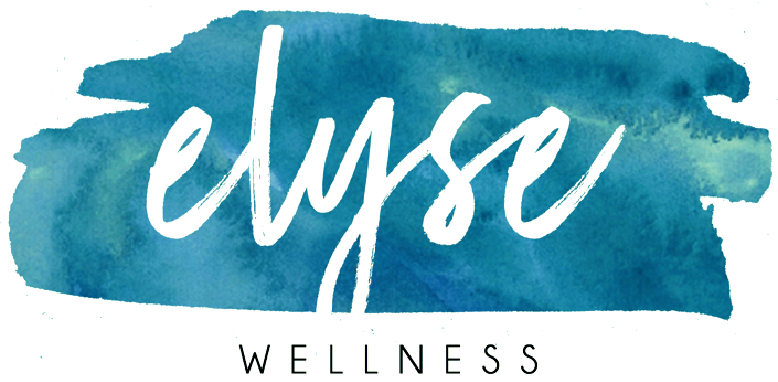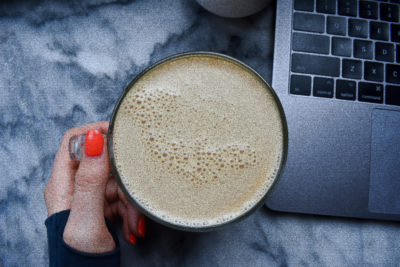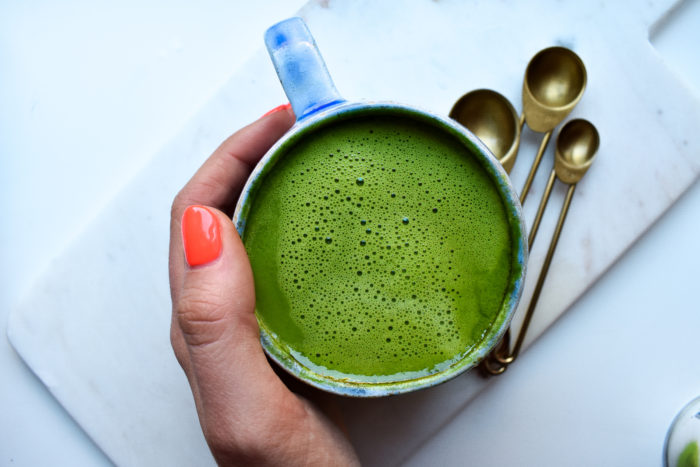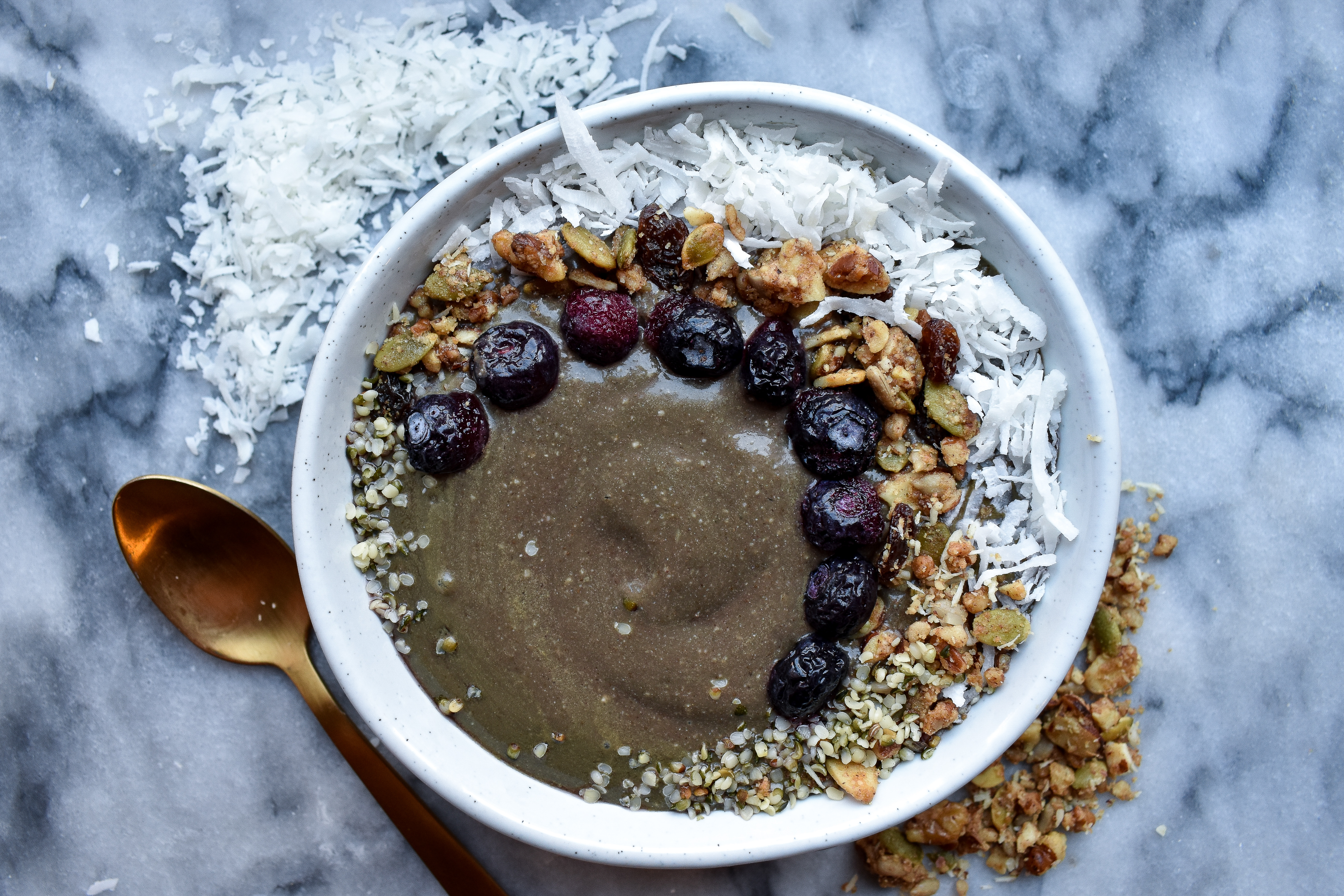A Month with out Coffee: Matcha vs Coffee

A month without coffee…I know, I know – a month isn’t even THAT long, but for a true bulletproof coffee lover like me, a month sans-coffee can feel like a seriously LONG time.
The thing is, as much as I love coffee, I also love giving it up for at least a month or two every year – usually when I start to feel TOO dependent on the caffeine (aka headaches if I don’t have coffee within a couple hours of waking up). I hate feeling like I’m addicted or dependent on any substance (caffeine is technically ‘the world’s most widely consumed psychoactive drug’) so I like to take a break once a year or so to break the pattern and give my body a reset.
my experience off coffee
ENERGY / APPETITE. When I gave up coffee at the beginning of February, I had almost no withdrawal symptoms (more on that below), and didn’t notice any major drop in energy levels with less caffeine. One big difference I did notice was my ability to intermittent fast. A bulletproof coffee or bulletproof matcha is always a part of my of my intermittent fasting routine as it lets me avoid a spike in insulin (great for fat burning) while still getting calories from fat in my system to keep my body happy and allow me to fast for longer than I’d be able to on a totally empty stomach. But even when making my matcha bulletproof, I notice it doesn’t kill appetite the same way coffee does for me. Not a huge deal, but I was eating breakfast earlier most days (around 9/930 vs 10/1030 on coffee)
SKIN. I was majorly struggling with my skin at the beginning of the year, and was willing to try ANYTHING that would help. My acne was hormonal, which can have a variety of root causes. Caffeine can affect your adrenals and cause the release of cortisol , which can negatively effect skin, so I figured it was a worth a shot to cut out for a while. The result? My skin has DRASTICALLY improved – BUT I was doing ALOT to fix it (blog post coming soon on everything I tried) – so I can’t give matcha all the credit for that one.
REGULARITY. Because you can’t talk about coffee without talking about going to the bathroom right? If your digestion has become dependent on the stimulus from the coffee, you could notice a difference in your regularity. Your body should adjust within a couple days, and in the meantime, up your water intake and try a high-fiber breakfast (I’ve been having my chia seed pudding and adding an extra tbsp of flax meal).
HAPPINESS. Mostly the same. Definitely had some days where coffee just sounded amazing – both for the taste and for the boost I know it gives me. But I got used to the matcha life pretty quick.
caffeine metabolism 101
Alright so let’s get into it. The big difference between coffee and matcha really comes down to their caffeine levels – coffee has almost 3x the caffeine, so if you don’t handle caffeine well, matcha may be for you.
When it comes down to it, caffeine is a central nervous system stimulate, and technically a ‘psychoactive drug’. Caffeine effects the body in many ways – it works by blocking by blocking the neurotransmitter adenosine, which gives you the feeling of alertness and being awake. Caffeine elevates blood pressure on consumption, and also increases the release of hormones like cortisol and epinephrine, which can help stimulate lipolysis (the release of stored fat for use as energy). It also enhances dopamine signaling.
Caffeine is probably one of THE most confusing substances to research. There a significant body of evidence highlighting how GREAT caffeine is (neuroprotective benefits, reducing cancer risk, reduced risk of type 2 diabetes) and an equal amount showing how BAD it is (higher risk of high blood pressure and heart disease).
So what is the deal? Well it all comes down to how YOU metabolize caffeine. Caffeine is a great case study in bio individuality – what might be amazing for you could be bad for someone else. If your what science calls a ‘fast metabolizer’ of caffeine, many of those great studied benefits likely apply to you. If your a ‘slow metabolizer’ you might be looking at more of the negative outcomes.
So how do you know which type of metabolizer you are? Well for starters, listen to your body. If you have half a cup of coffee and get jittery, anxious, and can’t sleep that night, you’re probably a slow metabolizer. If you can drink a cup of a coffee at 5pm and sleep like a baby, you’re probably a fast metabolizer.
Even better though, you can check your genes. The ability to metabolize caffeine in liver is dependent on the CYP1A2 enzyme, which is controlled by the CYP1A2 gene. So depending on the alleles you got from mom and dad, you could be a mix. If you have 23andMe you can see this in your raw data – search for rs762551. If you have AA, you’re a fast metabolizer, CC you’re a slow metabolizer, and AC you’re a mix (that’s what I am). This genetic insight can be super helpful, but still listen to your body! Even if you’re technically a fast metabolizer but caffeine doesn’t make you feel well – honor that! There are also many factors that influence caffeine metabolism besides this one key gene.

COFFEE vs. MATCHA
CAFFEINE LEVELS. A cup of brewed coffee contains about 95mg of caffeine, compared to about 25-30mg of caffeine in matcha. So again, this really goes back to how well your body handles caffeine more than anything.
ANTIOXIDANTS. Coffee and matcha are both great sources of antioxidants (coffee is the highest dietary source of antioxidants for most Americans), but they contain different types. Coffee has an ORAC score (which measures antioxidant levels) of 2780, while matcha has a score of 1348 (not a huge difference). Matcha is specifically known for being high in a type of antioxidant called catechins, including epigallocatechin gallate (EGCG).
OTHER FACTORS. Matcha also contains a nifty little amino acid called L-Theanine, which promotes relaxation, which is why matcha is known for giving you a little boost, without the crash / jitters.
thinking about ditching coffee?
If you’re interested in giving up coffee or making the switch to matcha, here’s my top trick for avoiding the withdrawal symptoms: trick yourself into reducing caffeine intake slowly!
I can definitely be an intense person and want to cut things out of my diet cold-turkey, which is what I’ve always done when taking a break from coffee (and what always resulted in a PAINFUL few days of feeling horrible and white-knuckling it through horrible headaches). This time around however, I barely had ANY withdrawal symptoms, which I’m crediting to switching to Four Sigmatic coffee BEFORE switching to matcha.
In January I was drinking at least 2 cups of full-caff coffee a day (so about ~150-200mg of caffeine). Then I started drinking more Four Sigmatic coffee in my daily bulletproof coffee, which has half the caffeine of a normal cup (50mg), BUT because of the mushrooms (like lions mane) that give you a great cognitive boost, you don’t feel it! So then when I switched fully to matcha (~30 mg caffeine) I barely felt a difference.

Since the end of Feb, I’ve started incorporating coffee (mostly just Four Sigmatic) back into my routine and have been alternating between that and matcha depending on how I’m feeling. I’m happy to report I’m not having any caffeine withdrawal headaches and my skin doesn’t seem to be affected.







